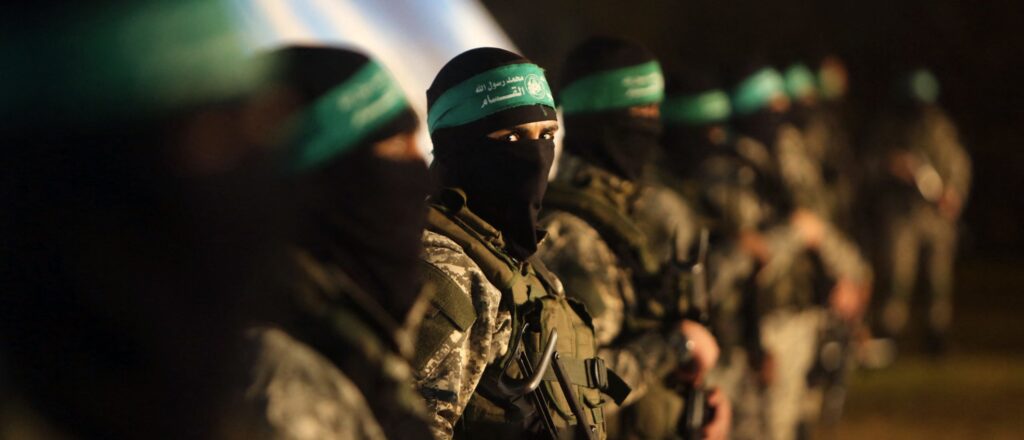The Palestinian militant group Hamas reportedly tortured an Israeli hostage to death after mistaking him for a pilot due to a tattoo on his arm. The victim, 68-year-old Itzik Elgarat, was kidnapped during a Hamas attack on the Nir Oz kibbutz on October 7, 2023. His brother, Dani Elgarat, shared these details during a Knesset House Committee meeting, revealing that Israeli intelligence officials had informed the family about the circumstances of Itzik’s death.
According to reports from The Times of Israel, Itzik was shot through the door of his safe room before being abducted by Hamas militants. The attack resulted in the capture of 250 individuals and the deaths of 1,200 people. Itzik’s remains were returned in February amid a brief ceasefire. Initially held captive with Edan Alexander, a U.S.-Israeli IDF soldier who was later released, Itzik was believed by Hamas to be a pilot due to an eagle tattoo on his arm.
“They took him for interrogation and he never came back,” Dani Elgarat told lawmakers. He further recounted how Alexander inquired about Itzik, only to be told by Hamas guards, “He has gone.” Dani alleged that Itzik died of a heart attack during interrogation under torture.
The Aftermath and Political Repercussions
The tragic incident has sparked criticism of Israel’s security measures and the diplomatic efforts to recover hostages. At Itzik’s funeral, Dani Elgarat accused Israeli Prime Minister Benjamin Netanyahu of being responsible for his brother’s death, claiming that Netanyahu had indirectly supported Hamas. Security personnel removed Dani from the funeral after his accusations, which some lawmakers considered provocative.
The attack has intensified scrutiny of Israel’s security apparatus, with families of victims and hostages expressing dissatisfaction over the lack of progress in securing the return of all captives. Prime Minister Netanyahu, speaking at a Shin Bet facility, emphasized the priority of freeing the hostages and defeating Hamas. “First of all, [we need] to free the hostages,” Netanyahu stated. “Of course, we will also have to solve the Gaza issue, to defeat Hamas, but I believe that we will achieve both tasks.”
International Reactions and Historical Context
The international community has been closely monitoring the situation, with former U.S. President Donald Trump calling for a deal between Israel and Hamas. Trump suggested that Netanyahu was actively negotiating with Hamas to secure the hostages’ release. This development follows a long history of complex relations between Israel and Hamas, marked by cycles of violence and fragile ceasefires.
Experts point out that hostage situations have historically been a significant point of leverage in Israeli-Palestinian conflicts. The current predicament echoes past crises, such as the 2006 abduction of Israeli soldier Gilad Shalit, which led to prolonged negotiations and a controversial prisoner exchange deal in 2011.
Implications and Future Prospects
The ongoing tensions and the tragic death of Itzik Elgarat underscore the broader challenges facing Israeli leadership in addressing security threats and negotiating peace. The incident has reignited debates over military strategies and diplomatic approaches in dealing with Hamas and ensuring the safety of Israeli citizens.
As the Israeli government navigates these complex issues, the international community remains watchful, urging a resolution that prioritizes human rights and regional stability. The path forward will likely involve intricate negotiations and potential shifts in policy, as stakeholders strive to balance security concerns with humanitarian considerations.
The situation remains fluid, with potential for further developments as diplomatic and military efforts continue. The world watches as Israel grapples with the immediate need to secure its citizens’ safety while addressing the broader geopolitical implications of its actions.
About The Author
 Tragic End for Backpacker Juliana Marins: A Journey of Courage and Heartbreak
Tragic End for Backpacker Juliana Marins: A Journey of Courage and Heartbreak Senate Poised to Pass Trump’s Major Tax and Spending Bill
Senate Poised to Pass Trump’s Major Tax and Spending Bill Senate Republicans Pass Trump’s Tax and Spending Bill Amidst Tense Overnight Session
Senate Republicans Pass Trump’s Tax and Spending Bill Amidst Tense Overnight Session “The Bear” and “28 Years Later” Dominate Streaming Spotlight
“The Bear” and “28 Years Later” Dominate Streaming Spotlight Wilmington Man Faces Serious Charges in Drug and Firearm Bust
Wilmington Man Faces Serious Charges in Drug and Firearm Bust